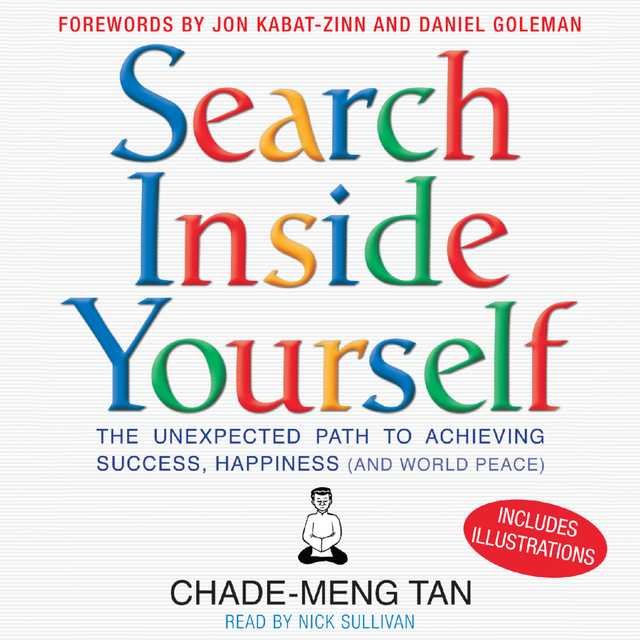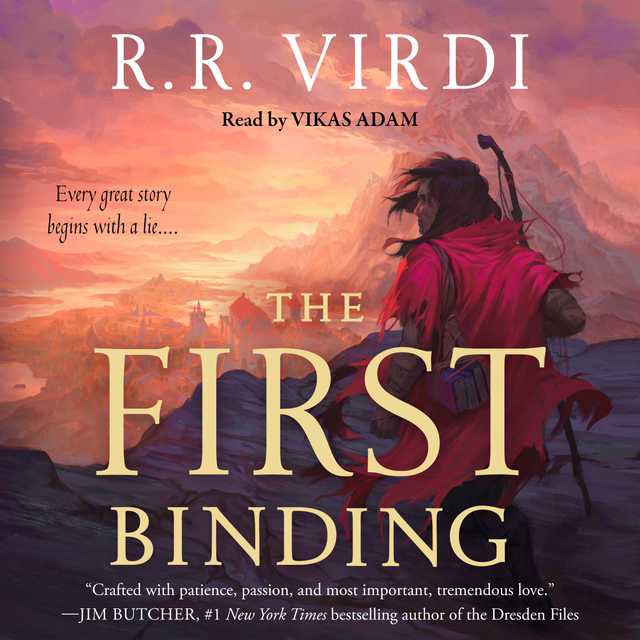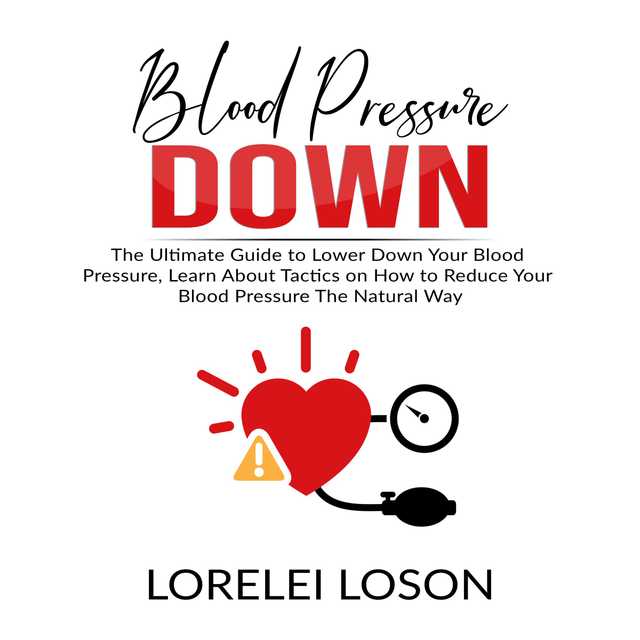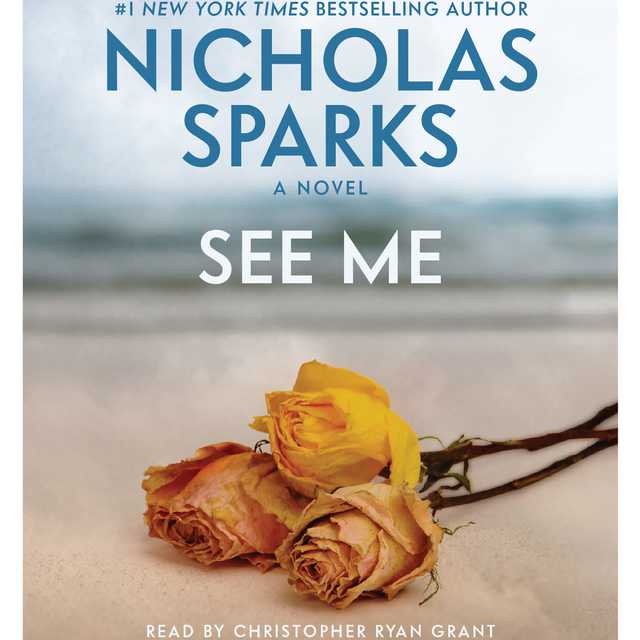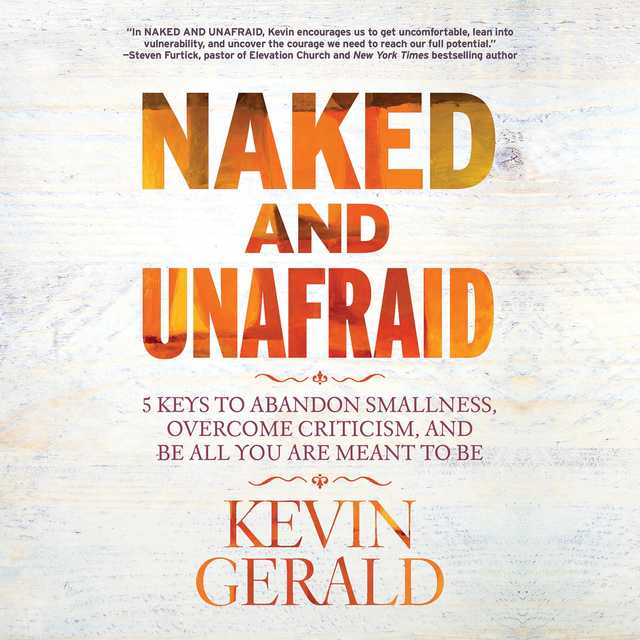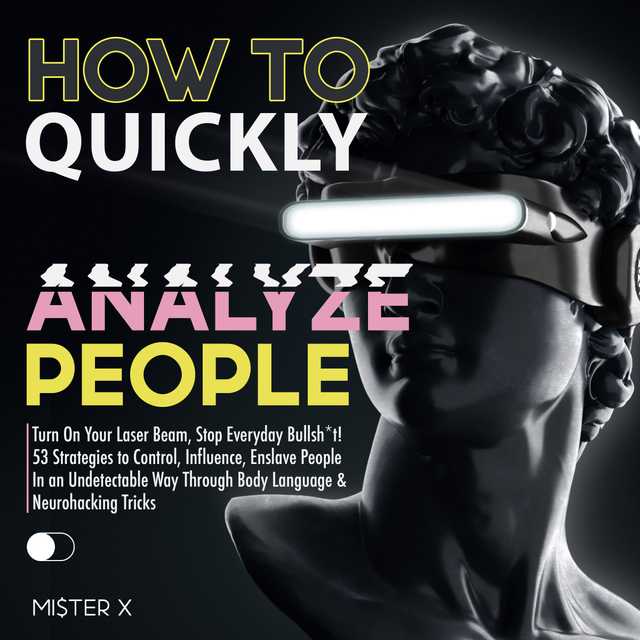Search Inside Yourself Audiobook Summary
Chade-Meng Tan, one of Google’s earliest engineers and personal growth pioneer, offers a proven method for enhancing mindfulness and emotional intelligence in life and work. Meng’s job is to teach Google’s best and brightest how to apply mindfulness techniques in the office and beyond; now, readers everywhere can get insider access to one of the most sought after classes in the country, a course in health, happiness and creativity that is improving the livelihood and productivity of those responsible for one of the most successful businesses in the world. With forewords by Daniel Goleman, author of the international bestseller Emotional Intelligence, and Jon Kabat-Zinn, renowned mindfulness expert and author of Coming To Our Senses, Meng’s Search Inside Yourself is an invaluable guide to achieving your own best potential.
Other Top Audiobooks
Search Inside Yourself Audiobook Narrator
Nick Sullivan is the narrator of Search Inside Yourself audiobook that was written by Chade-Meng Tan
Chade-Meng Tan is an award-winning engineer, international bestselling author, thought leader, and philanthropist. He is cochair of One Billion Acts of Peace (nominated seven times for the Nobel Peace Prize) and founding chair of the Search Inside Yourself Leadership Institute. As the former Jolly Good Fellow at Google, Meng led the creation of a groundbreaking mindfulness-based emotional intelligence course called Search Inside Yourself, which is also the title of his New York Times bestselling book. Meng delivered a TED talk on compassion at the United Nations and spoke at the White House about the development of kindness. His personal motto is, “Life is too important to be taken seriously.”
About the Author(s) of Search Inside Yourself
Chade-Meng Tan is the author of Search Inside Yourself
More From the Same
- Author : Chade-Meng Tan
- Joy on Demand
- Publisher : HarperAudio
- Abraham
- American Gods [TV Tie-In]
- Dead Ringer
- House of Sand and Fog
- Prey
Search Inside Yourself Full Details
| Narrator | Nick Sullivan |
| Length | 7 hours 43 minutes |
| Author | Chade-Meng Tan |
| Publisher | HarperAudio |
| Release date | April 24, 2012 |
| ISBN | 9780062201652 |
Additional info
The publisher of the Search Inside Yourself is HarperAudio. The imprint is HarperAudio. It is supplied by HarperAudio. The ISBN-13 is 9780062201652.
Global Availability
This book is only available in the United States.
Goodreads Reviews
Thomas
October 15, 2012
When a trusted friend suggested I read this popular book, I was interested but leery of reading – yet another – “step-by-step” plan for meditation. Typically, books on deepening one’s awareness or spirituality or devotional life are old plans retreated to appear as “new information” with the requisite (and obvious) reminder that daily adherence to the plan is required. This book’s power lies in it stating the truth that living and life are to be found the moments of “mindfulness.” Search Inside Yourself addresses this truth (that we have learned NOT to notice life) with clarity, humor and forthrightness while helping the reader to “wake up.” The author, a well-trained Engineering Scientist for the internet juggernaut Google, developed the Search Inside Yourself program (during the 20% time Google allows its employees to “work on whatever they are interested in”) to help his fellow workers be more relaxed, think more clearly and be more productive. This once in house program has evolved into Meng’s new job and the charge to “bring about world peace,” a lofty goal and one he is convinced is achievable. This will be completed by the peoples of the world learning to “search inside themselves” to discover the stillness, direction and acceptance needed to cease the striving at the root of all conflict. Because of my faith tradition, when I hear Meng speak of “mindfulness,” I hear “contemplation” as understood from the Monastic traditions. That being said, this is the best, most concise discussion of, and instruction in, meditation I have found. In reading after the desert fathers, ancient and modern mystics and contemporary contemplatives, I have been exposed to the need for this discipline but have rarely found as clear instruction as to how one is to practice it as this text. There are numerous exercises, empirically based (Meng being an Engineer cannot proffer anything without data) suggestions that lead the reader toward developing their own styles for this practice included throughout each chapter. None of the exercises are difficult to learn but will take a lifetime to approach mastery. The nature of Mindfulness is not as much about mastery as it is about developing and enhancing awareness of Self and one’s surroundings/actions/thoughts. This is not a book to read once and put away, neither is it to be read quickly. The “how to”ness is found in the space discovered within one’s Self as one “wakes” up to the world around and inside them. Meng, and countless other writers, speaking of like disciplines, says “everything is a reason to become aware of.”
Winnie
June 11, 2012
Read this in two sittings, one during dinner and one after dinner-induced food coma. I picked up this book because I was curious what would one of the most famous Singaporeans (at least in tech) write on the intangible subject of Happiness. I was not disappointed and actually the book turned out to be way beyond my expectations. He advocates using mindfulness meditation as a tool to increase happiness and creativity, gives plenty of scientific evidence and statistics to prove that meditation is not just for new-agey crazy people (like me). I did not know Google actually offered this as a course for Googlers and it was very encouraging to know that the course gave a positive impact on those who took it.The author's humor was prevalent throughout the book and simply by reading it, it made me smile.More importantly, he also explained why he wanted to write this book and why it was important to him. I could feel his enthusiasm and passion for the subject throughout the book. I rate this book highly for these reasons:1. It was very enjoyable to read because of the author's humor.2. It offered practical and easy to understand steps to learn mindfulness meditation3. He substantiated it with science (yay for the skeptics)4. It was very inspiring for me because this book is a great example of how something with great impact can start from a simple idea.5. Full of great quotes like –"wilting flowers do not cause suffering; it is the unrealistic desire that flowers not wilt that causes suffering."
Casey
March 24, 2016
Meditation has turned into somewhat of a sexy practice these days, especially among techie types. Case in point: this book about meditation, written by the person in charge of meditation at Google. However, this is not some business book about increased productivity. Indeed, Chade-Meng Tan’s goal in life is to change the world through increased personal contentment and compassion.I started practicing meditation before I actually knew what meditation was, although I certainly wouldn’t consider myself even close to being an expert. As a kid, I had guided meditation tapes (why I had them, I have no idea), and my mom taught me how to chant ohm when we got stressed out looking for parking (can you tell I grew up in Southern California?).But, like many others, I didn’t really get into meditation until I started doing yoga. At the beginning, I wasn’t exactly putting in the best effort towards meditating during shavasana, but then I experienced something magical. During a yoga class in college, my instructor asked us to imagine a white ball of energy inside the chest. She guided us in mentally moving the ball of energy around ourselves, allowing us to focus on each part in turn. I felt surprisingly energized afterwards. I wanted to learn more about meditation.After my first real experience with meditation, I started doing it with more frequency, but relatively timidly. I practiced the breathing exercises I’d learned to help myself go to sleep. I used meditation to stop being annoyed by traffic. I practiced breathing in positive energy and letting the negativity leave my body. Many, many years later I’ve been making a point to deepen my practice, planning time for it so that I don’t stop doing it when I need it most. Unsurprisingly, I’ve been reading as much as I can about it as well.This book is filled with great information and meditation exercises, the same ones used in the Search Inside Yourself course at Google. Some of my favorites are the loving kindness meditation (trying to remember that Donald Trump is also a human that desires happiness is really quite difficult) and the empathic listening exercises. Search Inside Yourself is definitely a great toolbox for anyone interested in meditation.
diane
November 19, 2013
To people who meditate regularly, the beginning of this book will be things you already know (well, I assume so - I meditate regularly, and fee that the start of the book was a refresher course). But the science behind the examples was interesting and reinforced my commitment to meditate regularly.And then it changed. This book took the practice of meditation and explained how it helped you at work. Like. For reals. No, really for reals.And then it just... kept going. It kept building on the ideas that came before and there is a clear and true path to inner peace, as well as performing better at work, having better relationships, and ultimately ... world peace.I know what it sounds like. I do. But for reals, this is one of the clearest ways I've ever read about that really does address the HOW to get there, as well as the why. But I like the HOW, since I'm a can-do kinda girl.Read the book. It doesn't matter what religion you are, or even if you don't have religion. The practice of meditation has quantifiable results (no joke, I lowered my blood pressure to be within in normal ranges with just 10 minutes a day for a week), both physiologically but psychologically as well!Perhaps you don't care about world peace. That's legit. But the methods in this book will help you achieve both personal peace and work peace. Those things right there make it worth reading.
Audrey
July 05, 2012
The writing style is a bit too dumbed-down and seems to have some forced humor. I enjoyed the practical snippets that recommend actionable steps you can take toward meditation and leading a life with more inner peace and happiness.
Nikolay
December 07, 2017
My hopes for the book were that it would be the one book about mindfulness I could recommend to all friends, because it was coming from an engineering mind. It almost lived up to my expectations, but not quite. While the bullshit levels were super low, the depth was sometimes lacking and substituted with name-dropping.Still, it was a great overview of mindfulness – some theory, a ton of practices, which I think will be useful to everybody in the “creative workforce”.Give it a try.What I mostly got out of the book were the kindness and compassion practices – I guess that’s what I am lacking the most :-)
Jeanne
March 05, 2017
Star performers in the tech sector differ from average performers in six ways: a strong achievement drive, ability to influence others, conceptual thinking, analytical thinking, initiative in taking on challenges, and self-confidence (Goleman, 1998). If you're looking at this list and thinking success here goes well beyond technical skills, you're right. Can these skills be built? Chade-Meng Tan's argues that they can be; Search Inside Yourself outlines Meng's professional development program at Google to do just that.Search Inside Yourself has forewords from both Daniel Goleman (emotional intelligence) and Jon Kabat-Zinn (mindfulness training). His insights come from connecting these two approaches in a novel way: (a) using a regular mindfulness practice to train attention, so as to (b) develop greater self-knowledge and self-mastery, and (c) create useful mental habits for approaching self and others. Meng offers a series of guided meditations and other exercises to facilitate this process and build these skills. Search Inside Yourself is readable, irreverent, wise, and grounded in current scientific knowledge. Meng wrote to appeal to an audience other than that typical for these ideas – engineers low in emotional intelligence rather than people on a spiritual journey. In Search Inside Yourself he attempts to take these ideas to a larger audience and create world peace. That goal seems optimistic, yet people who regularly practice metta bhavana (lovingkindness meditations), Just Like Me (an empathy practice), and tonglen (a meditation sharing compassion with others) break down the barriers between one person and another that otherwise cause misunderstanding and interpersonal problems.
Jessica
April 07, 2019
I liked this better than other mindfulness books I've read, like 10% Happier. Meng spearheaded the creation of a course for Google employees on mindfulness meditation (couched in the framework of building emotional intelligence, which is more "business-like") and then adapted the curriculum into this book. What I liked was that Meng sets a very low bar for entry into the practice of mindfulness meditation: he suggests practicing meditation the "easy way" — noticing your breath for 2 minutes — or the "easier way" — sitting for 2 minutes with no agenda whatsoever. He ties together individual stories of transformation, scientific research, and endearingly bad jokes to explain why you should practice mindfulness and provide a variety of options for practices you can try. Even if you find his approach too cheesy, the content is solid and practical and the exercises can be adopted almost immediately.However! I do not recommend this on audio. The audiobook narrator was challenging to listen to. He over-enunciated all his words so that he sounded like an odd mashup of a radio announcer and a computer-generated voice. It was almost like he was trying to adopt an ironic, self-mocking tone, like, yes, this book is a kind of business-y self-help book in the mold of Who Moved My Cheese?, but we're not taking ourselves too seriously, so it's OK! See, there are jokes! Whatever the reason, it made it extra hard to focus on the content. The other reason I don't recommend the audio is that they completely wasted the additional opportunities the format provides. There are, throughout the book, meditation exercises detailed step-by-step, with instructions to "pause for 30 seconds" or "long pause." However, they chose not to actually include the pauses in the audiobook, which means if you want to follow along with the exercise, you have to constantly keep whipping out your phone to hit the pause button, by which point they've generally already read the next step in the exercise. If the pauses had been included, then it would have encouraged the reader to actually follow along in completing the meditation, or else they could choose to skip past the exercise altogether.If you can get past the corporate taste of this book (and Meng's sometimes repetitive writing — he says "in other words" approximately 17 times per chapter), then this is a solid introduction to the benefits of mindfulness using an accessible format. It's relatively short, and I'd say it's worth the time to read it!
Lutfi
July 14, 2020
[Self-Help]Buku ini menceritakan tentang bagaimana kita mampu menguasai minda dan emosi diri sendiri. Tergolong dalam kategori ‘self-help’, buku ini merupakan adaptasi daripada program yang diguna pakai oleh syarikat google di Googleplex – Silicon Valley, Carlifornia; bagi meningkatkan kesedaran dan kepakaran staf dalam menguasai ‘emotional intelligence’.Apatu ‘emotional intelligence’ ?Dipendekkan cerita, emotional intelligence (EI) merupakan pasangan kepada intelligence quotient (IQ). Jika IQ mengukur status kepintaran seseorang dalam berfikir. EI pula mengukur status kepintaran seseorang dalam mengawal emosi. Kenapa ‘emotional intelligence’ tu penting ?Seiring dengan peningkatan usia, Emotional Intelligence memainkan peranan yang semakin penting bagi menentukan kemampuan kita dalam mengawal diri dan berkerjasama. Akhirnya ia menjadi sebuah aset dalam meraih kejayaan, kebahagiaan dan bagi sesetengah pihak - keamanaan dunia. Hakikatnya, walaupun tidak semudah teori, manusia tetap harus mencuba mempelajari dan memperbaiki. Hal ini bukan sahaja memanfaatkan individu di sekeliling kita, namun juga bermanfaat kepada diri sendiri. Buku tu ada tak cerita tentang cara untuk meningkatkan ‘emotional intelligence’ ?Ada & banyak. Bermula dari mengajar bernafas & berhenti sejenak untuk berfokus kepada sesuatu situasi maupun perkara. Kemudian dilanjutkan dengan kisah dan modul bagi mengenali diri dan memantapkan keyakinan diri. Dan akhir sekali memperkenalkan kisah dan konsep bagi memupuk nilai empati dan belas kasihan sesama manusia. Ketiga-tiga peringkat pemahaman tersebut secara tidak langsung akan membentuk Emotional Intelligence yang lebih kukuh, stabil dan cakna dengan keadaan sekeliling. Sehingga mudah-mudahan ia membantu dalam memperolehi minda dan emosi yang lebih terkendali dalam menelusuri kehidupan sehari-hari. Sebagai konklusi, poin-poin penting dalam buku ni adalah:1. ‘Breathing & Mindfulness’2. ‘Self-confidence & Self-discovery’3. ‘Empathy & Compassion’4. ‘Emotional Intelligence’15 Juli 2020,Muhammad Lutfi,Kajang, Selangor.
Kevan
January 29, 2015
The author has developed a course at Google designed for its engineers, during which he leads employees through an extremely accessible adaptation and explanation of meditation practices, emotional intelligence, and mindfulness. As a result, principles which are often cloaked in much depth or complexity are now laid bare with simple break-out exercises, illustrations and storytelling, designed for cynical, linear-minded readers. The first read was great, and will help me know which pages to flip back to for quick-reference. (When I read books, I generally don't account for time to "practice exercises" so found myself skipping a few of the break-outs, preferring to come back later).Some of the stand-out ideas for me:- You are not your emotions. Think of your body as the sky, and emotions like clouds. They are passing, fleeting, and you can simply observe them as a phenomena. - Tuning in to your breath for a few short minutes can absolutely still your mind and body enough to gain a whole new perspective. These are some of the exercises I *did* try when reading, and I'm excited to try and build better habits around simple meditation.The author wants meditative practices to become so commonplace and obvious, it's taken for granted, like the health benefits of exercise. I'm into that. This book will be one important contribution towards that effort. The last book I tried on this topic was called "Mindfulness in Plain English," and even that one accidentally got stuck in over-defining traditional practices. This one offers history when needed, but otherwise, stays extremely practical, offering historical perspectives when useful.English isn't the author's first language, which is extremely impressive (authoring a book in your non-native tongue?), and also helps explain the slightly-awkward humour and turns of phrase he employs. Also, it's meant for engineers, who would probably be a more cynical audience than I. I would have preferred one that didn't assume the reader was starting from a place of antagonism. Chade seems to be a person with an amazing attitude, and I consider it an honour to learn from somebody who has applied these principles to his life in such an authentic way.
Alisa
June 01, 2012
I write about and teach meditation. As a result, many people ask me for a good, easy-to-read guides for beginners. Search Inside Yourself delivers. The author adapts several standard Buddhist meditations for the work setting, and he blends Dharma teachings (never really calling them Dharma, though) with the fields of psychology and specifically emotional intelligence. The book is easy read and left me with several take-aways, even though I've been meditating for years. For instance, I particularly loved the exercise of mentally arguing for your opponent to get a sense of his or her motivations. I've found that one quite useful. I dog-earned more pages than I can count so I could come back to them later. Even though this is a business book, the material could easily be used for any situation that involves dealing with difficult people, including marriage.
Most Popular Audiobooks
Frequently asked questions
Listening to audiobooks not only easy, it is also very convenient. You can listen to audiobooks on almost every device. From your laptop to your smart phone or even a smart speaker like Apple HomePod or even Alexa. Here’s how you can get started listening to audiobooks.
- 1. Download your favorite audiobook app such as Speechify.
- 2. Sign up for an account.
- 3. Browse the library for the best audiobooks and select the first one for free
- 4. Download the audiobook file to your device
- 5. Open the Speechify audiobook app and select the audiobook you want to listen to.
- 6. Adjust the playback speed and other settings to your preference.
- 7. Press play and enjoy!
While you can listen to the bestsellers on almost any device, and preferences may vary, generally smart phones are offer the most convenience factor. You could be working out, grocery shopping, or even watching your dog in the dog park on a Saturday morning.
However, most audiobook apps work across multiple devices so you can pick up that riveting new Stephen King book you started at the dog park, back on your laptop when you get back home.
Speechify is one of the best apps for audiobooks. The pricing structure is the most competitive in the market and the app is easy to use. It features the best sellers and award winning authors. Listen to your favorite books or discover new ones and listen to real voice actors read to you. Getting started is easy, the first book is free.
Research showcasing the brain health benefits of reading on a regular basis is wide-ranging and undeniable. However, research comparing the benefits of reading vs listening is much more sparse. According to professor of psychology and author Dr. Kristen Willeumier, though, there is good reason to believe that the reading experience provided by audiobooks offers many of the same brain benefits as reading a physical book.
Audiobooks are recordings of books that are read aloud by a professional voice actor. The recordings are typically available for purchase and download in digital formats such as MP3, WMA, or AAC. They can also be streamed from online services like Speechify, Audible, AppleBooks, or Spotify.
You simply download the app onto your smart phone, create your account, and in Speechify, you can choose your first book, from our vast library of best-sellers and classics, to read for free.
Audiobooks, like real books can add up over time. Here’s where you can listen to audiobooks for free. Speechify let’s you read your first best seller for free. Apart from that, we have a vast selection of free audiobooks that you can enjoy. Get the same rich experience no matter if the book was free or not.
It depends. Yes, there are free audiobooks and paid audiobooks. Speechify offers a blend of both!
It varies. The easiest way depends on a few things. The app and service you use, which device, and platform. Speechify is the easiest way to listen to audiobooks. Downloading the app is quick. It is not a large app and does not eat up space on your iPhone or Android device.
Listening to audiobooks on your smart phone, with Speechify, is the easiest way to listen to audiobooks.

